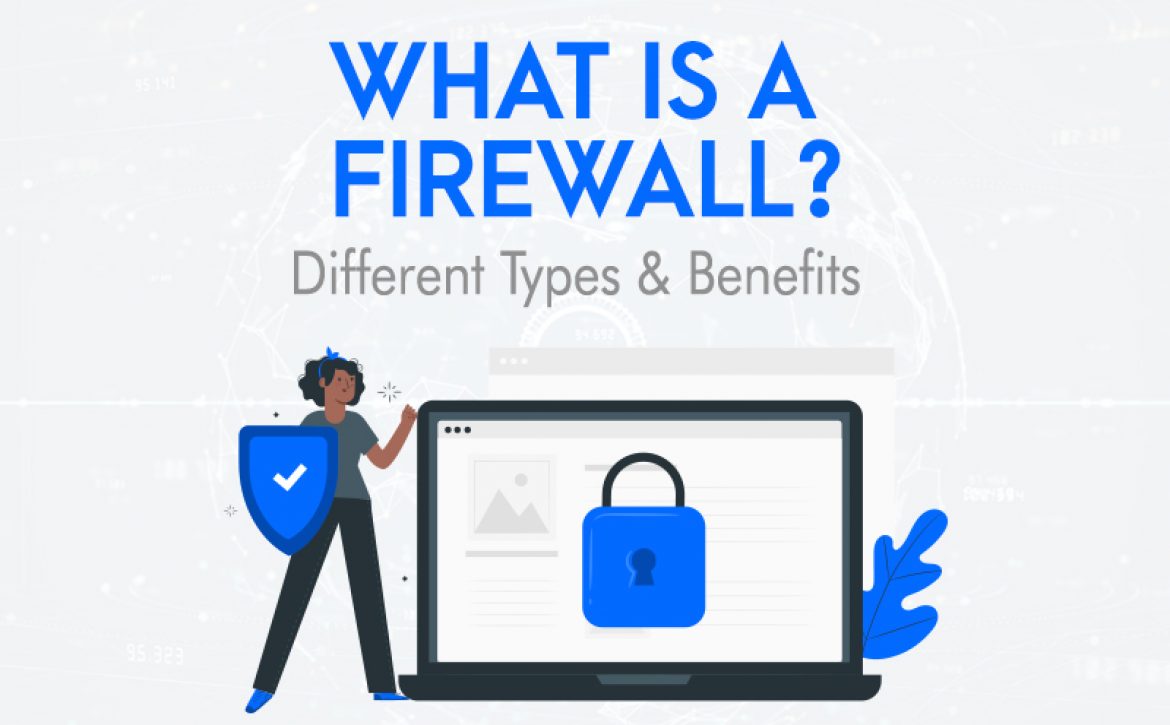5 Different Types of Firewalls
What is a Firewall?
A firewall is a hardware or a software tool, intended to block all unwanted inbound traffic while letting genuine visitors pass through. As a network security mechanism, the firewall blocks suspicious information packets according to specified regulations and requirements.
In simpler terms, a firewall serves as a guard between the remote network and the Internet to stop unlawful or illegal entry. The firewall used as both software as well as a physical device, they are the best and primary source of protection against network threats, malware, and hackers and safeguard your organizational network structure.
What is a Hardware Firewall?
A hardware firewall serves as a doorman and anti-malware choice for the network. It sits directly behind the router and can be designed to examine incoming traffic, screening out dangers as they bump into the device.
A hardware firewall is a remote gadget much like a server that monitors the visitors and traffic of a network or system. While a customer would generally plug a network wire straight into a desktop or server, with a physical hardware device, the wire is inserted into the device first. The firewall lies between the exterior system and the server, giving an antivirus option and excellent barricade against hackers and cyberbullies.
Benefits of Hardware Firewall
- A hardware firewall is very useful to control the traffic that in your network.
- You can configure it according to specific visitors.
- It eases the burden on the server because it is an alternative to software firewalls and you can clear up space in your memory and enhance the functioning of computers.
Facts Regarding Firewalls
- It helps to monitor and filter out suspicious data packets.
- Can alleviate the load on other network operations. Such as, you can deactivate network security software, which can free up badly required storage and increase the productivity of your systems.
- Routers and Firewalls—There is a lot of difference between router and firewall. A router is used for targeted traffic by shutting any incoming visitors; routing is one of the tasks of a firewall with the primary objective of preventing irregular traffic.
Type of Firewalls
There are different firewall types. It all depends upon the organization’s needs and operational capability. You can choose from any of these firewalls depending upon the type of protection you want.
1. Proxy Firewall
A proxy firewall blocks suspicious communication and safeguards the private servers and networks. Its extra functional abilities include content caching and it provides a secure connection between exterior and interior networks. The other name for it is the app firewall filter. A proxy firewall is instrumental in protecting server resources.
2. Stateful Inspection Firewall
It is a firewall that stops inbound visitors which is based on protocol, port. It is called a stateful inspection firewall. It regulates and oversees dynamic networks in diverse states to inspect which information is safe and which is harmful to enter the network
3. Unified Threat Management (UTM) Firewall
A UTM firewall includes the traits of standard network security with many other security elements. Generally, Unified Threat Management (UTM) offers the functional capability of malware tools, data breach protection, which are generally joined side by side. These firewalls are perfect for SMB’s
4. Next-Generation Firewall (NGFW)
These firewalls are made to filter and stop modern-day cyber threats, for instance, sophisticated viruses, and protect the applications against those who want to exploit the vulnerabilities in the program. This firewall can also carry out normal stateful checks as well.
5. Threat-focused NGFW
Besides providing the features of a standard NGFW, threat-focused NGFW offers sophisticated threat spotting and helps to restore the functionality of the system. It furthermore identifies which resources are more susceptible to risk with a comprehensive context information record. It can counter-attacks using a smart security management system and can manage several other security-related challenges.
Final Words
A fully functional firewall can be the solution to all your network problems. It can boost the speed of the system and can help to alleviate your burden. If you are a small business owner and not sure what to do a managed IT service provider can answer your problems. They can set up all the necessary hardware and software required to run a business.

